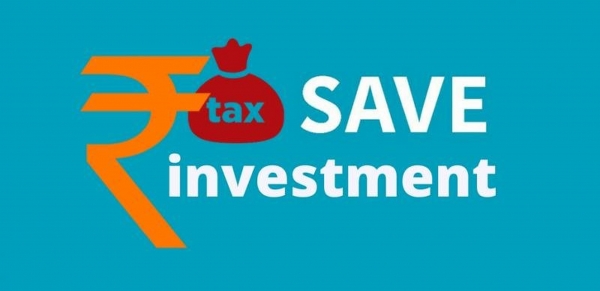Tax Saving Investments: Save your taxes beyond Mutual Fund
When you invest your money in such schemes, you can automatically avail the tax deductions and exemptions. These exemptions have been listed under the different
- by aditi verma 2019-12-19 07:24:45

Tax Saving Investments: You can reduce your tax burden by putting your money in the tax saving investments that are mostly offered by the government as well as the private finance organisations.
When you invest your money in such schemes, you can automatically avail the tax deductions and exemptions. These exemptions have been listed under the different sections of the ITA (Income Tax Act of 1961) like Section 80C, 80D, 80CCF and others as well. There are many opportunities available for investing your money in the various tax saving schemes that are being offered currently. Some of the tax saving investments are listed below:
All you need to know about various tax saving investments available in India
- Tax saving investment - Public Provident Fund
Also commonly called PPF. In this scheme, you can not withdraw the money before the term of 15 years ends. However, a penalty will be charged if money is withdrawn before the end of the term. The maximum amount that you can put in the PPF is Rs. 1.5 lakhs per year. The maturity period for the same can be extended in blocks of five years each time.
- Tax saving investment - Unit Linked Insurance Plans
It is also called the ULIPs. The maturity earnings under this scheme are exempted from taxes. In this tax saving investment, allow for a maximum exemption of Rs.1 lakh per year.
- Tax saving investment - Fixed Deposit
These have a fixed term of 5 years. The maximum amount that can be invested so as to avail the tax benefits of the scheme is Rs. 1 lakh. The top banks that offer tax saving fixed deposits include the ICICI Bank, HDFC Bank, Axis Bank, IDBI Bank and the SBI.
- Tax saving investment - Employee Provident Fund
This is commonly called the EPF. This scheme also offers the tax benefits of about 1 lakh rupees per year.
- Tax saving investment - National Saving Certificate
Also commonly called NSC. Using this scheme, one can easily earn tax saving interest of about Rs.1 lakh every year.
- Tax saving investment - Infrastructure Bonds
The maximum exemption that can be allowed under this scheme is of Rs. 20,000 per year. The interest earned under this is chargeable. However, the investors will be allowed to claim tax exemptions for about Rs.15,000
- Tax Saving Investment - Mutual Funds
The tax saving mutual funds are popularly known as ELSS (Equity Linked Savings Scheme). Under this, the total tax benefits of up to Rs.1 lakh per year is allowed. The lock-in period for this fund is between 3 to 5 years. The long term capital gains earned through this scheme will be tax-free. Some of the Major fund houses that offer the tax saving mutual funds include the HDFC MF, IDBI MF, Birla Sun Life MF, ICICI Prudential MF and the SBI MF.
- Post Office Tax Saving Investment Schemes
Post office tax saving schemes also fall under the ambit of Section 80C. You can claim up to Rs.1 lakh in tax benefits every year through the various post office investment options. The tax saving schemes under the post office include Time deposit account, Recurring deposit account for 5 years, 15 years Public Provident Fund account, Senior Citizen Savings Scheme, and the National Savings Certificate (VIII Issue).
- Tax saving investment - National Pension System (NPS)
NPS is a retirement savings scheme. Tax benefits can be incurred when you invest in the NPS. Only an investment that is up to Rs. 1.5 lakh will be qualified for the tax deductions in NPS. Under the NPS, partial withdrawal can be availed up to 25 per cent of the contribution to cover the expenses such as children’s higher education or marriage, construction or purchase of the first house, and medical treatment. The money withdrawn will be tax-free.
TAX SAVING INSURANCE PLANS IN INDIA
Life insurance plans are one of the preferred options for tax saving investments in India. For the payment of the premium under an insurance policy, the policyholder gets a tax rebate. Also, the premium which is paid for the parents and the in-laws will be exempted. The maturity benefits of the insurance policies can be availed for tax deductions. The tax benefits are provided in all these policies under section 80C and 10 (10D) of the Income Tax Act. Some of the top tax saving insurance plans include:
1. Aviva i-Life Plan
The minimum policy term is of 10 years and the maximum is of 35 years. Minimum assured sum is of Rs. 25 lakh
2. Bajaj Allianz i-Secure
The minimum policy term is of 10 years and the maximum is of 30 years. Minimum assured sum is of Rs. 20 Lakh.
3. LIC New Jeevan Anand
The minimum policy term is of 15 years and the maximum is of 50 years. The minimum assured sum is of Rs. 1 lakh.
4. HDFC Life Click 2 Protect Plus
The minimum policy term is of 10 years and the maximum is of 30 years. The minimum assured sum is of Rs. 10 lakh.
5. SBI e-Shield
The minimum policy term is of 5 years and the maximum is of 30 years. Minimum assured sum is of Rs. 20 lakh
TIPS FOR THE FIRST TIME TAXPAYER
Top tips for the first-time taxpayers while filing the Income Tax Returns (ITR) include:
1. Know your income slab
It is the most important and the first step to knowing your income slab. The persons with an annual income of Rs. 2.5 lakhs do not have the liability to pay taxes. For the senior citizens, the limit has been extended to Rs. 3 lakhs.
2. Identity Proof
The basic details such as Aadhaar Number, PAN Number, Bank Account Number with IFSC Code, contact number and a valid email ID are required to be submitted while returns are filled every year.
3. Consider all the sources of income
Income not only includes the earnings from your employment but also includes the other sources such as rent, investment, etc., irrespective of them being taxable or exempted from taxes.
4. It is possible to save income tax using insurance plans
Plenty of insurance schemes offer eligibility for tax deductions as well as exemption from income tax. Tax benefits of up to Rs. 1.5 lakh can be availed under the life insurance schemes.
5. Filling the Form correctly
When filing the ITR, accurate and correct details should be mentioned properly in the form.
TAX SAVING HEALTH INSURANCE INVESTMENT
As a policyholder, a tax deduction of up to 25,000 can be availed of each year on the premium paid for the policy. The coverage under the insurance can be availed by the policyholder, their spouse, and the children. The premium that has been paid for siblings can not be eligible for a tax deduction. Through the health insurance, the financial goals of the family can be achieved in case a medical emergency arises. It is one of the best tax saving investments to save on income tax.
TAX SAVING TERM INSURANCE INVESTMENT
Another one of the tax saving investments includes the term insurance. Term insurance is an insurance policy that gives coverage for a specified period. If during the term of the insurance, the policyholder dies, a death benefit will be given. The premium paid will be eligible for tax benefits. A tax deduction of about Rs 1.5 lakh could be claimed every year for the premium for you, your spouse, and children.
The above-mentioned tax saving investments are subject to change as per the provisions of the Income-tax Act of 1961. Hence it is important to be aware of all the latest information related to different tax saving investments.
Also Read: How your equity mutual funds fared in 2019
POPULAR POSTS
Microsoft is set to invest $1.5 billion in the Emirati AI company G4
by B2B Desk, 2024-04-16 09:11:46
Top 5 Best Technical Analysis Tools For Stock Market
by B2B Desk, 2024-04-10 08:52:28
Which investment is 100% tax-free: 3 tax-saving investment options for tax-free income
by B2B Desk, 2024-03-20 10:24:31
How to use Systematic transfer plans (STPs) for maximum returns
by Gaurav Grover, 2023-10-10 05:55:12
ICC World Cup 2023: Experts recommend these stocks to buy today. Should you buy?
by B2B Desk, 2023-10-06 08:43:51
World Financial Planning Day 2023: Five tips to become a crorepati
by B2B Desk, 2023-10-04 07:29:39
Where to invest: Here are top 10 investment options to choose from
by B2B Desk, 2023-08-25 10:33:13
RECENTLY PUBLISHED

Nestle's potential regulatory trouble in India over sugar issue; brand clarifies
- by B2B Desk, 2024-04-19 08:53:55

"Ola, Uber challenger Namma Yatri is in discussions to raise $10-15 million in its debut funding round."
- by B2B Desk, 2024-04-18 09:31:53

Ibotta, supported by Walmart, aims for a valuation of up to $2.7 billion in its upcoming US IPO
- by B2B Desk, 2024-04-18 08:52:37

Beginner's Guide: Getting Started with Stock Market Investing, Step by Step
- by B2B Desk, 2024-04-18 07:36:20




 Subscribe now
Subscribe now 